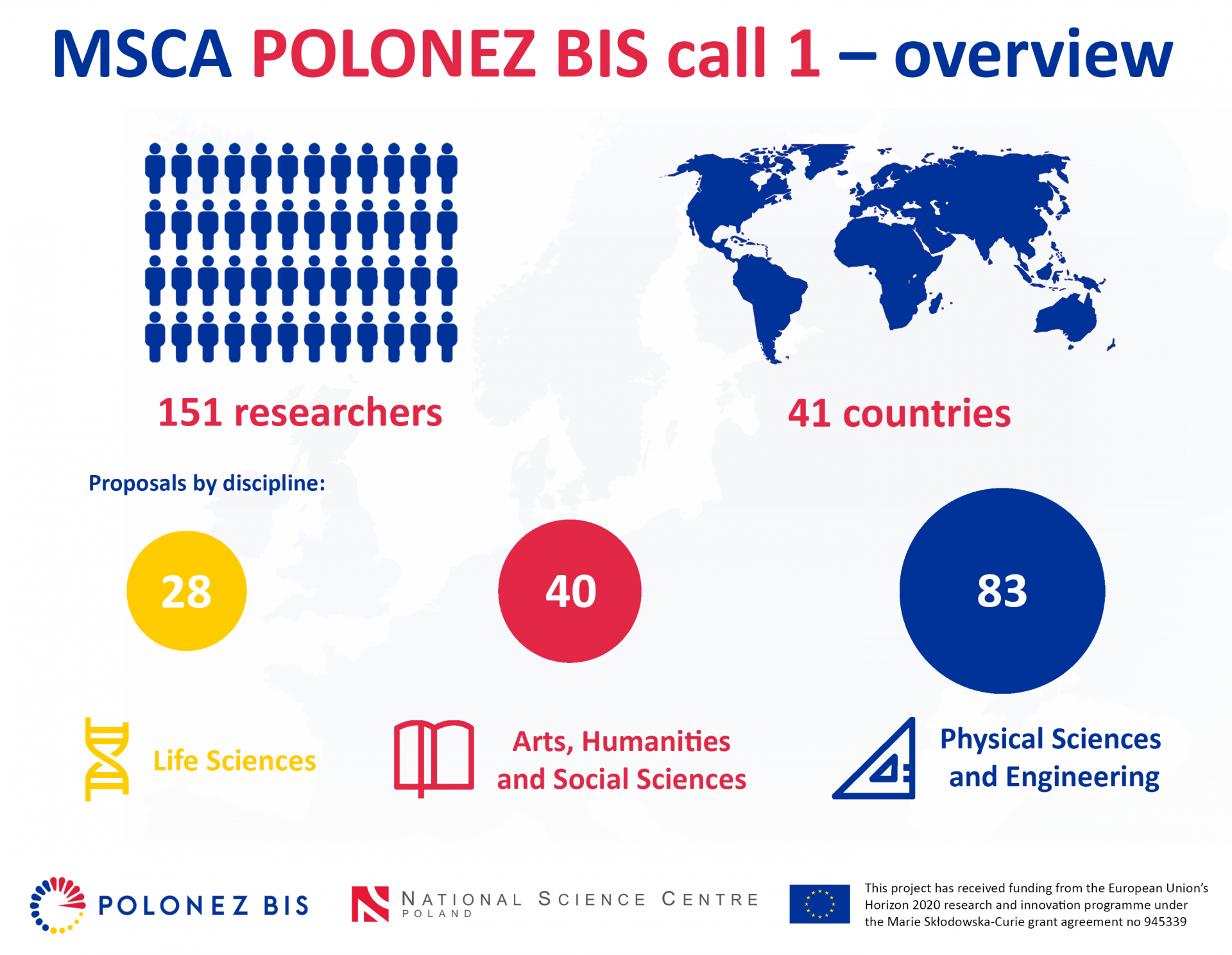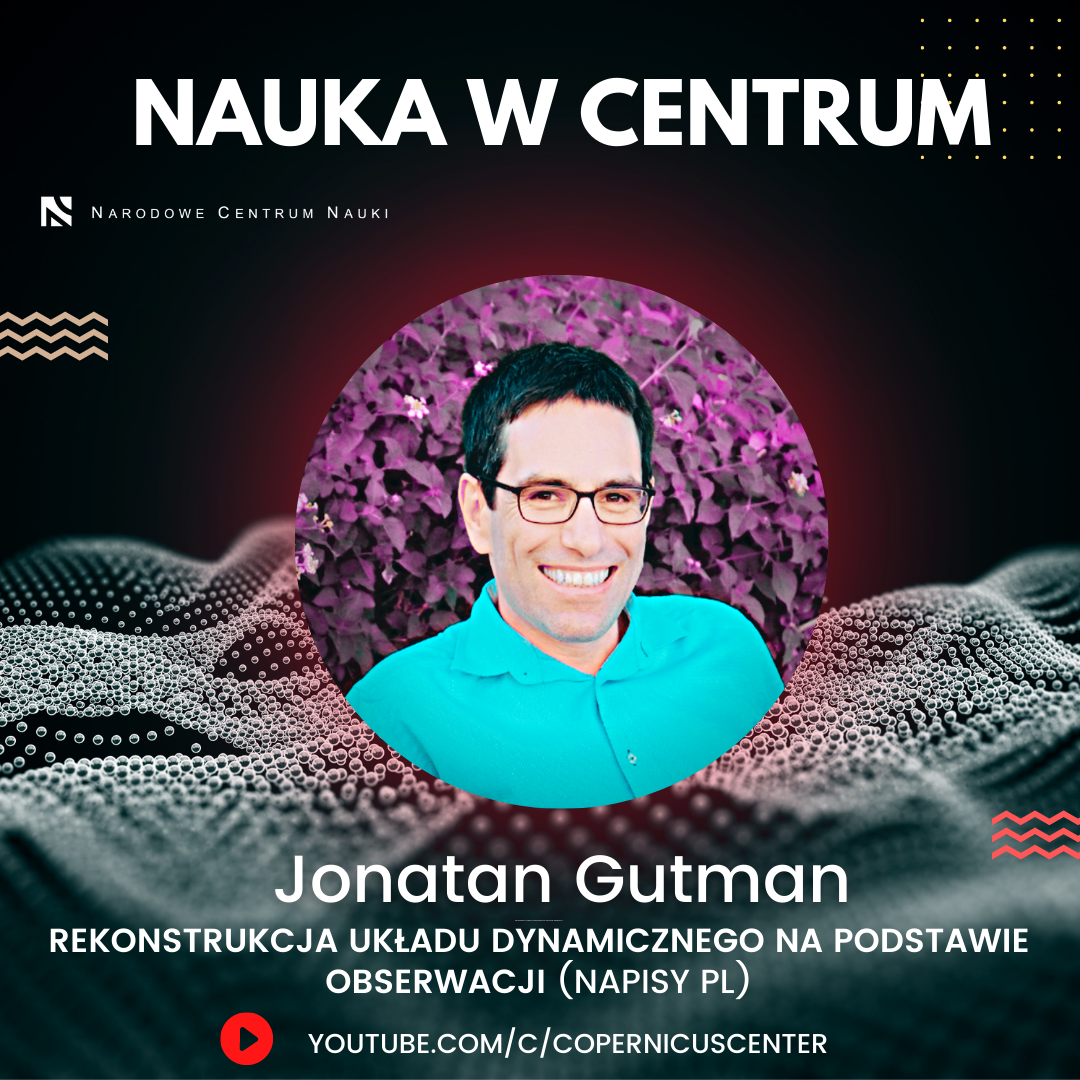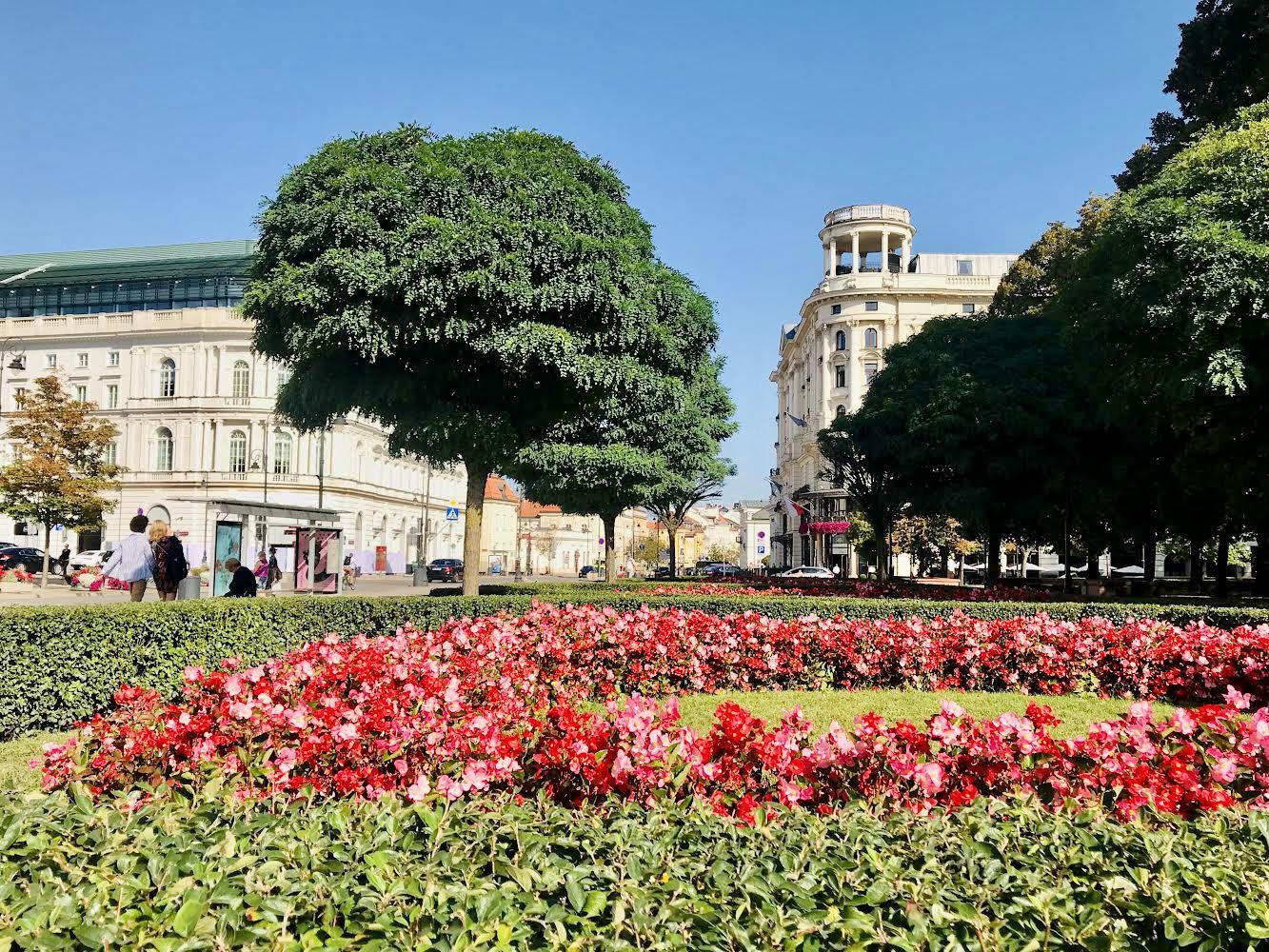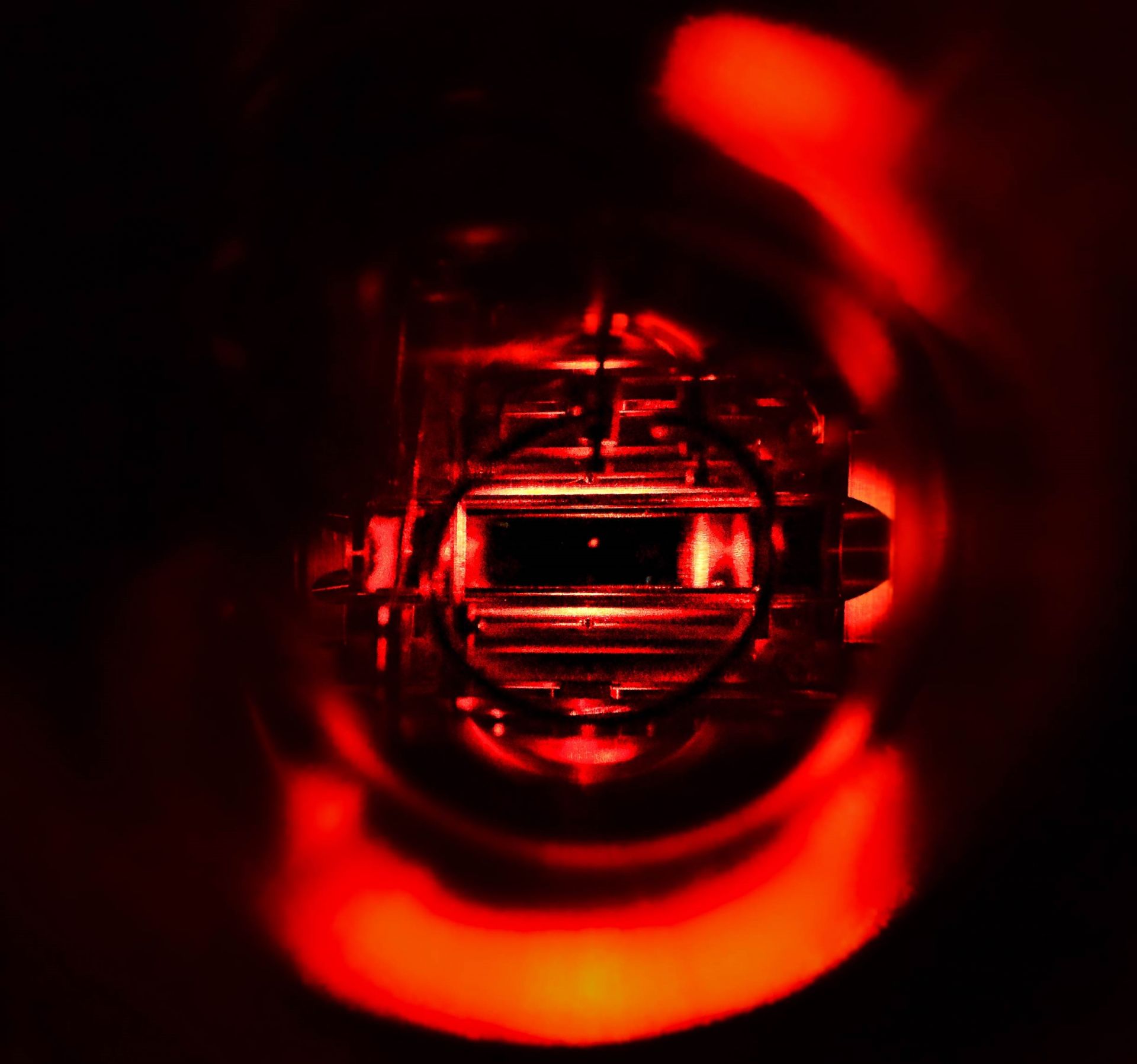 The experimental system, photo by Freiburg University
Scientists from the Faculty of Physics of the University of Warsaw, headed by Dr hab. Michał Tomza, and an experimental team led by Professor Tobias Schaetz at the University of Freiburg, were the first to observe Feshbach resonances between a single ion and ultracold atoms. An article that presents their research results has just been published in “Nature” and even made it to the cover of the magazine.
The experimental system, photo by Freiburg University
Scientists from the Faculty of Physics of the University of Warsaw, headed by Dr hab. Michał Tomza, and an experimental team led by Professor Tobias Schaetz at the University of Freiburg, were the first to observe Feshbach resonances between a single ion and ultracold atoms. An article that presents their research results has just been published in “Nature” and even made it to the cover of the magazine.
Dr hab. Michał Tomza is a physicist and chemist specializing in the description of matter at ultralow temperatures, as well as the theory of interactions and collisions between ultracold atoms, ions and molecules. In 2020, he won the NCN Award in physical sciences and engineering for his theoretical description of such phenomena.
Funded under the NCN’s OPUS programme and entitled “Ultracold quantum mixtures of ions with atoms, molecules, and Rydberg atoms: novel hybrid systems and applications”, the research project published by “Nature” was carried out in 2017-2021 by a research team at the University of Warsaw, which also included Dariusz Wiater, a Phd candidate, Agata Wojciechowska, an MSc student, and Dr Krzysztof Jachymski, a member of the Faculty of Physics, University of Warsaw, in cooperation with researchers from the German research centre.
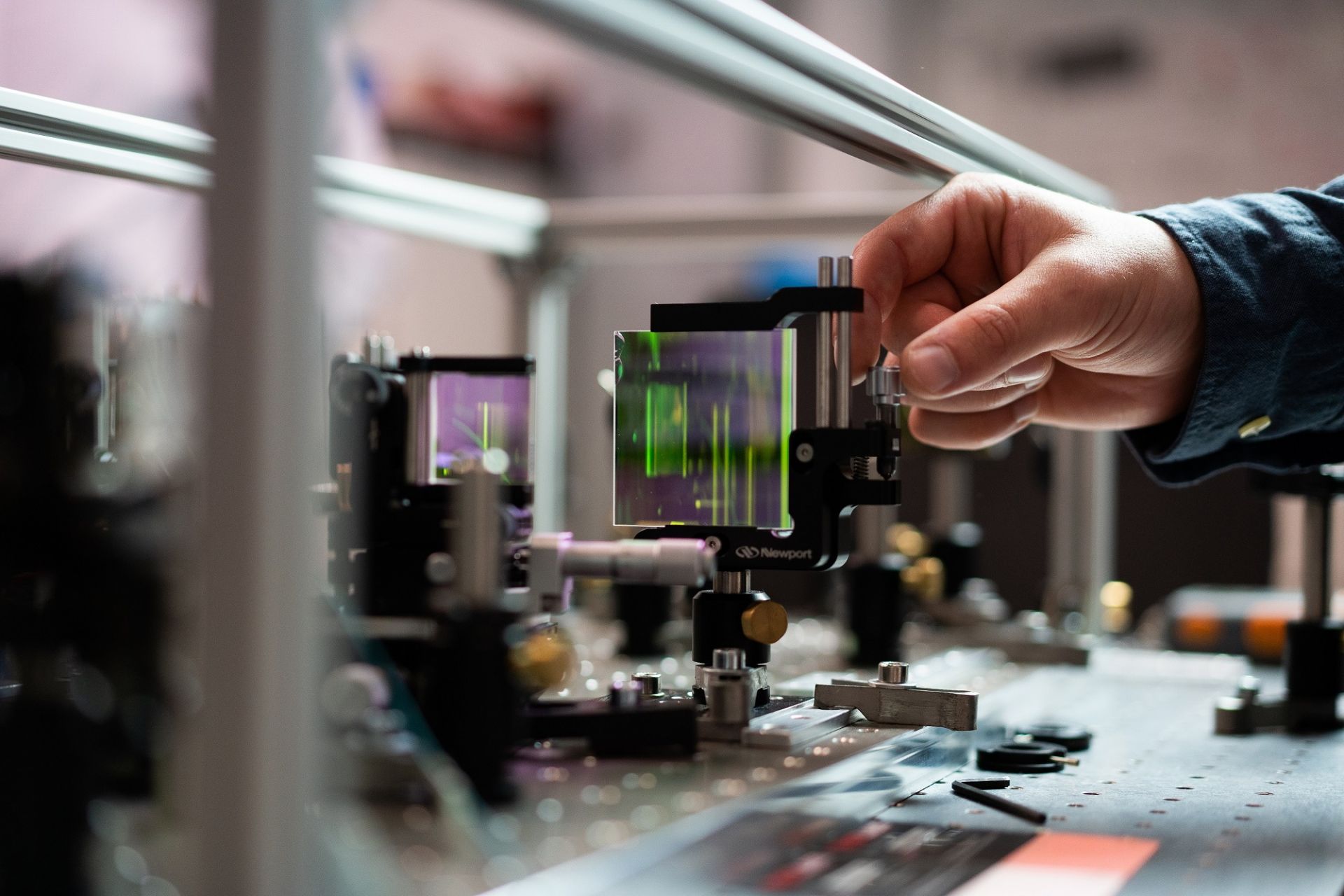 Laboratory at the Faculty of Physics, photo by M. Kaźmierczak/Warsaw University
Laboratory at the Faculty of Physics, photo by M. Kaźmierczak/Warsaw University
The microscale quantum world
The world around us has a quantum nature that we cannot see in our daily life. It does come to light, however, at very low temperatures, which allow phenomena such as superfluidity or superconductivity to manifest. A good example of quantum matter can be found in the form of ultracold atom gases cooled down to a fraction of a degree above absolute zero. Under such conditions, interactions between atoms can be controlled by means of electromagnetic fields, using Feshbach resonances. Magnetic Feshbach resonances significantly increase the frequency of collisions when molecular energy states are adjusted to the energy of colliding atoms. The scientists from the University of Freiburg and the Faculty of Physics of the University of Warsaw were able, for the first time, to observe and explain such resonances between a single ion and ultracold atoms.
In the experiment, resonances were observed as an increase in the probability of ion loss due to interaction with atom pairs for specific values of the magnetic field. The scientists were also able to demonstrate an increase in the frequency of two-body collisions in the proximity of the resonance, which allows the ion to be cooled down effectively. Through a theoretical analysis, they were also able to determine previously unknown interaction parameters and predict the position of the resonances that were not initially detected by the experiment.
Blazing the trail for next-generation experiments
Ultracold ion-atom systems have a variety of potential applications such as quantum computations and simulations, but they require temperatures much lower than those of neutral atomic gases. Several experimental groups have spent years working toward this success, with the computational support of, e.g. the Warsaw physicists. The results blaze the trail for next-generation experiments, as it will now be much easier to control the quantum state of the ion. A lower energy and a longer lifetime allow new phenomena to be investigated and generate new and interesting quantum matter states which, on the one hand, will help us better understand the quantum nature of our world and, on the other, serve as another element of newly emerging quantum technologies. Ion-atom Feshbach resonances can soon be expected to be observed for other element combinations as well.
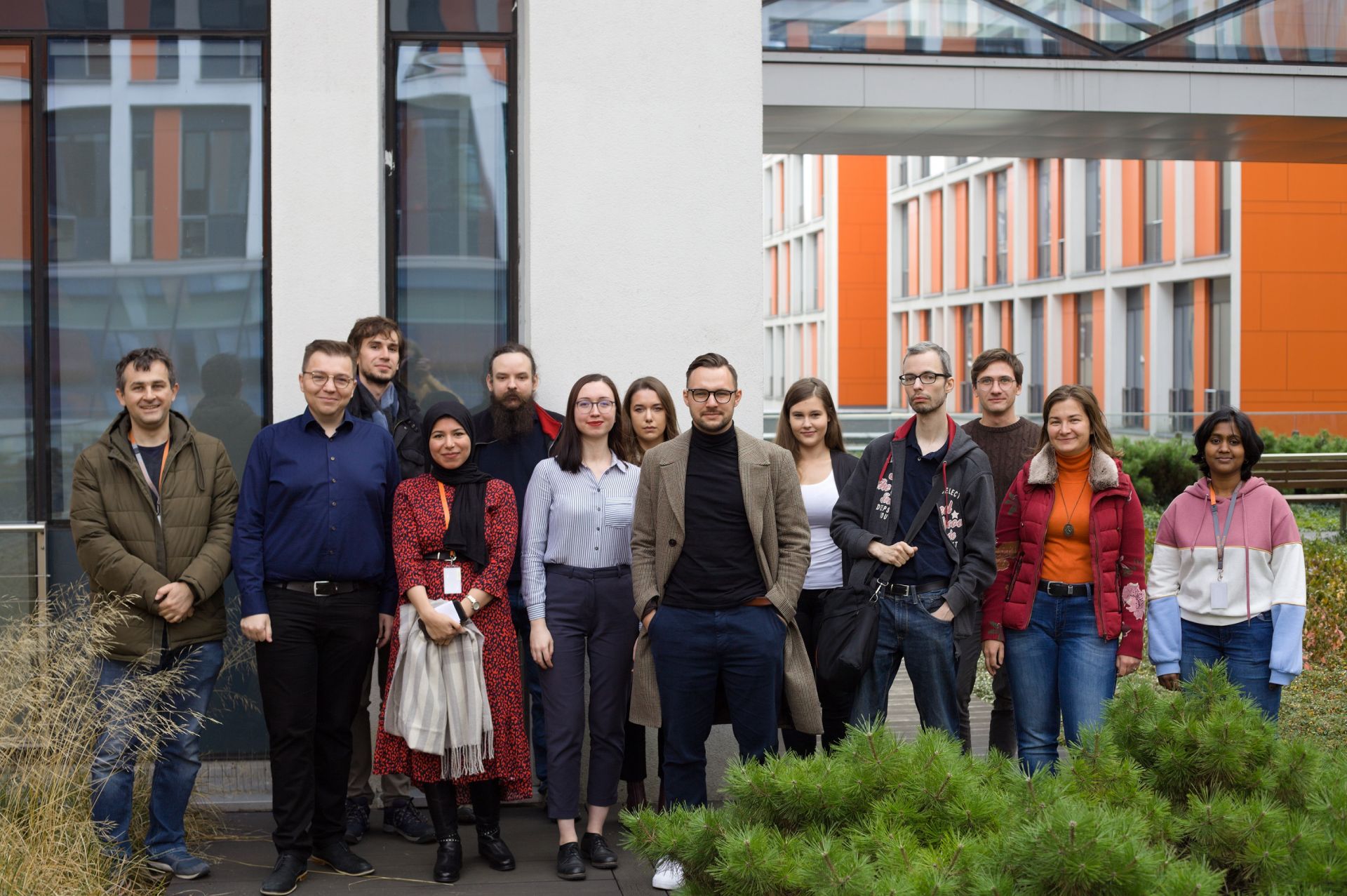 Research group of M. Tomza, photo by P. Kulik
Research group of M. Tomza, photo by P. Kulik
Previously, in tandem with an experimental group headed by Professor Rene Gerritsma at the University of Amsterdam, Dr Tomza’s group successfully cooled down a single ion immersed in an ultracold atomic gas to the quantum regime of ion-atom collisions and observed shape resonances. The results of that cooperation were published by “Nature Physics” last year and formed part of the research record that earned Dr Tomza the NCN Award.
NCN grants and project descriptions.
Acceptance speech during the NCN Award ceremony on 6 October 2021.
The research team (University of Warsaw).
